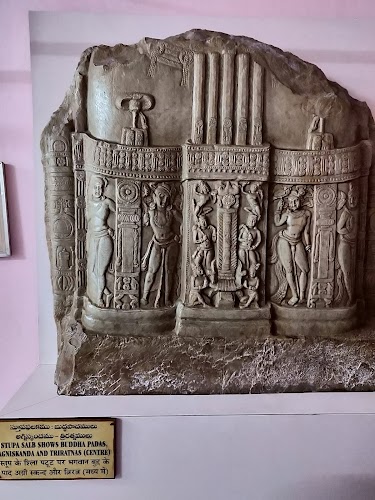
Amaravati Archaeological Museum
Vijayawada, India
- Explore ancient Buddhist sculptures
- Learn about Satavahana dynasty
- Photography of ancient art
- See Amaravati stupa relics
- Study historical artifacts
Known for:
Description:
The Amaravati Archaeological Museum in Vijayawada is a treasure trove of ancient Buddhist artifacts and sculptures. It showcases the rich history and artistic heritage of the Satavahana period, with a primary focus on the Amaravati stupa. Visitors can explore a vast collection of relics, including intricately carved limestone panels, Buddha statues, and pottery. The museum offers a captivating glimpse into the region's glorious past and is a must-visit for history enthusiasts and those interested in Buddhist art and culture. The museum provides detailed information about the exhibits, making it an educational experience for all.
History:
The museum's collection is primarily derived from the ancient Buddhist site of Amaravati, located about 35 km away. The Amaravati stupa was a major Buddhist center from the 2nd century BCE to the 3rd century CE, flourishing under the Satavahana dynasty. The stupa was adorned with exquisite limestone carvings depicting scenes from the life of Buddha and Jataka tales. Over the centuries, the site fell into disrepair, and many of the sculptures were scattered. The museum was established to safeguard and display the recovered artifacts, preserving them for future generations. It provides a valuable insight into the evolution of Buddhist art and the cultural exchange that took place in the region.